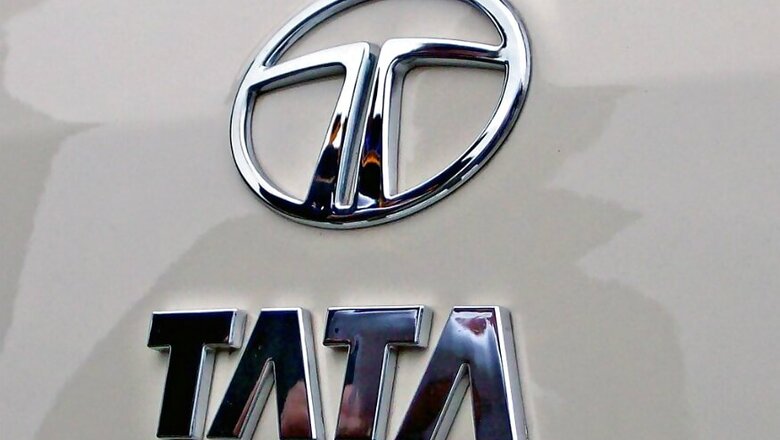
views
Hit hard by the continuing volume slowdown and mounting losses at its British arm JLR, Tata Motors is looking for partnerships to lessen the financial burden, chairman N Chandrasekaran said. Addressing the shareholders at the 74th AGM, the chairman, however, pointed out that the automobile sector is such that a company cannot shut the cash tap as the very nature of this business demands continuous investment in product and technology development. On the uncertainty of Brexit, Chandra said, more than the final outcome of the exit of Britain from the EU, it's the uncertainty that is hurting JLR in its home market and Europe, which is the largest source market for the millions of components that JLR procures annually.
"The only way to handle the ongoing crisis and the continuing need for a large capex is additional investment through partnerships because we want to spread the investment, which cannot be shut either. There are many discussions from tactical to strategic for such partnerships. Opportunities are coming and we keep evaluating them. We'll forge such partnerships so that we are
able to address the capex issue," Chandra told shareholders. It can be noted that the woes at JLR, which used to be the cash-cow for years for Tata Motors, its bottom line has been sinking for the past three successive quarters. While Tata Motors made history by booking the largest ever losses for the December 2018 quarter with a mammoth Rs 26,961 crore due to impairment charges on JLR, last week it reported a net loss of Rs 3,679 crore for the June quarter as against Rs 1,862 crore loss in March 2019.
On the troubles that JLR has been facing in China, which was its largest market for many years, Chandra said there are two types of revenue from the largest auto market, one through Chery JLR joint venture under which some models are produced locally and other through selling imported units. "Both these revenue streams are affected now," he admitted and said the company on average has been seeing 40-50 per cent dip in volumes in China. "Our focus should be on continuous press operational efficiency, forge partnerships so that the capex can be optimised in any form of the partnership that makes sense and that get the volume to pick up. "Honestly speaking the issue is in terms of sales. We need to pick up sales. But otherwise, if you take the debt, the domestic business has got Rs 15,000-16,000 crore, roughly 2.5 times the Ebitda, but the JLR debt apart from working capital is completely sustainable," Chandra said.
Stressing on the need to remain continuously invested, he said, like any other auto company, JLR also has to invest in future technologies of hybrid and electric. We also have to invest in future models and also in areas like shared mobility. That's very important to stay alive in this ecosystem. All this means there is a need for capex if you want to be future-ready, he said. But there is a silver lining in China as "for the first time in 12 months, we are seeing positive volume growth in China in July after a recovery in June. But we need to wait for a couple of more months to see whether there's a trend." He said during the past 12-18 months, JLR has cut down capex from around 4.5 billion pounds to 3.9 billion pounds. "And we are working towards cutting down further, but we can't take a very drastic cut."
On Brexit, which has felled two prime ministers, David Cameroon and Theresa May, he said, "more than the impact of Brexit, it is the uncertainty of its potential impact, and this is much higher on JLR than any other company. "The real concern is if Brexit were to happen with or without a deal, what will be the impact on our supply chain. We import millions of components from other parts of the world, particularly Europe. In the situation of Brexit, there's a possibility of a supply chain breakdown which essentially means production cannot happen, inventories are
to be maintained. Chandra said Tata Motors has made big investments in electric vehicles business and that it plans to have EVs of the four existing models, of which the hatchback Tigor is
already commercially available. The next EV model will be Nexon, which is expected to be launched around January, he said adding then Altroz and followed by one more.
"There are four models that we plan as of now. We not only have to create the models, but we have to create EV infrastructure as well for which Tata Motors and Tata Power are working closely. We plan to put EV infrastructure in at least 25 cities. We need to create this demand as well."

















Comments
0 comment